There are a number of warning signs one should look out for when the rule of law is under threat in a democratic state, Professor Susan Hirsch, a Professor of Conflict Resolution and Anthropology at the George Mason University in the USA told The Malta Independent on Sunday.
She was asked by this newsroom for the warning signs any society should look out for in order to tell if the rule of law is under threat. "In the very basic sense, the rule of law is a commitment to ensuring that laws are fair, publicised, clear, apply equally to everyone, that there is access to justice and that everybody should have some say in those laws. If there are problems with any of those, then there would be problem with the rule of law," she said.
"A classic warning sign is when people who have great power are above the law, when the laws don't apply to them. That is a classic case of tyranny and people call it out as a violation of the rule of law. When laws or the law making process are not transparent, when courts don't function efficiently, when people don't trust the police, these are all areas where there would be a problem with the rule of law," she continued.
What will your talk in Malta be about?
I have been studying rule of law for around a decade. What people do in the name of the rule of law has been an interest of mine for quite a long time. I am a cultural anthropologist, trained in the area of legal anthropology, and I also work on conflict resolution. In the midst of conflict, law breaks down. It can break down in very violent and destructive ways.
One area I am interested in is how you re-establish rule of law in situations of violent conflict and I have conducted studies in East Africa, specifically Kenya and Tanzania.
Rule of law is a question in a lot of places, and my talk will not only deal with situations where it breaks down completely, but it will also deal with situations where there is a call for rule of law, where people are concerned about it, and that can happen in functioning democracies and in our own contemporary society. I have been hearing this a bit more, thinking of my own country; my talk will deal with what one can do where there are calls for rule of law, what it means, and how it relates to concerns about rule of law elsewhere in the world.
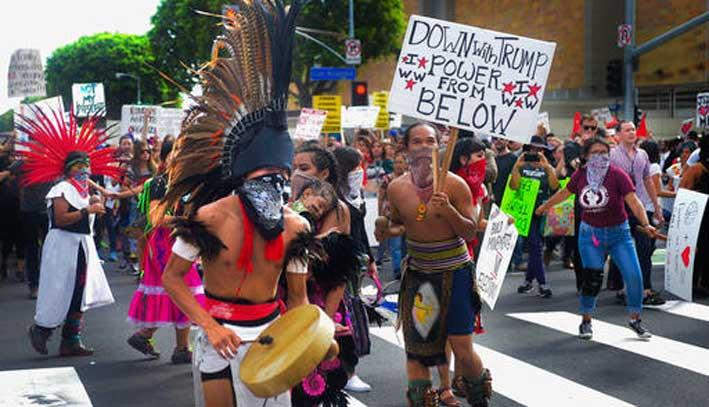
In a country where rule of law does break down because of conflict, how do you go about rebuilding it?
There are a number of different ways to achieve this, and this is something the conflict resolution field works on. We sometimes call it transitional justice, moving from a stage of breakdown towards a more peaceful society. You first have to get people to talk to each other and think about what happened, understand the harm done. Part of getting people to talk to each other means getting them to trust each other again, which is a major step. Trust is hard to build, especially where there was violence or when the state has been violent.
You can bring people together through dialogue, or follow South Africa through truth and reconciliation – and there are a number of models similar to this. Sometimes there has to be legal remedies, possibly trials to hold people accountable in some way. You need to rebuild the legal system, and if there are concerns as to who is controlling the legal system you might need to vet judges, ensuring the people in power now were not part of the problem.
There are many other aspects which then also come into play, such as rebuilding infrastructure, taking care of traumatised victims and so on. But you need to get people thinking differently, as to how they are together as a community, and rebuild their relationships. It can take a while and the education system is important.
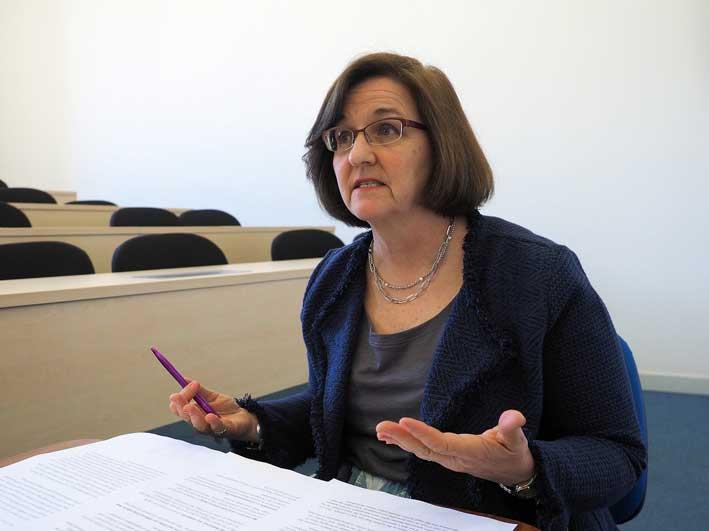
In Europe, far-right groups are gaining more power. Can that eventually lead to having an effect on the rule of law?
There can be concerns about democracy with the rise of extreme groups, groups that hold extreme views or demonise others they do not want to form part of society. Extreme views that demonise others are the most worrisome, as this can lead to marginalization and dehumanization in social and political life. When you have extreme polarisation, it is a recipe for people no longer trusting each other, no longer collaborating in the project of democracy. There’s a great new book called How democracies die, and extreme polarisation and extreme partisanship is a warning sign…
Could there be an effect even in the case of non-extremist movements, where in a democratic state for example there would be heavy partisanship between two parties?
It might have an effect as it means that collaborative decision-making, collaborative solutions that would be useful for everyone could be more difficult to achieve. Partisanship particularly if there is manipulation of votes then it can be very difficult, as it means that people can be cut out from their democratic right.
I have the US in mind now and some of the things that happened in terms of limiting the people’s right to vote, or manipulations that shape people’s views aimed at making them more extreme and more likely to hold onto a party view. That can result in people no longer being interested in collaborating in the wider scheme of things. It becomes difficult to find common solutions and democracy can get stuck, which can erode the rule of law as well.
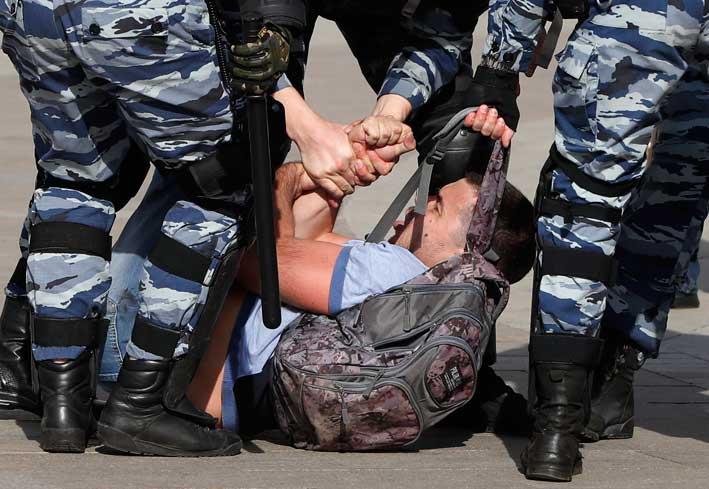
What are the warning signs that rule of law is under threat in a democracy?
In the very basic sense, the rule of law is a commitment to ensure that laws are fair, publicised, clear, and apply equally to everyone. There is also access to justice, so everybody should be able to have some say in those laws and use the justice system in a fair and equal way. If there are problems with any of those, then you know you have a rule of law problem.
A classic warning sign is when people who have great power are above the law, when the laws do not apply to them. That is a classic situation of tyranny and people call that a violation of rule of law. When laws or the law-making process are not transparent, when courts don’t function efficiently, when people don’t trust the police, these are all areas where there would be a problem with the rule of law.
When people are not treated equally under the law, that can raise questions about the rule of law. It only works if we all feel like we have a stake in the legal system, and that we can get justice through the legal system. As soon as you see some people being counted out, then the legal system could begin to lose legitimacy or people could lose interest in it.
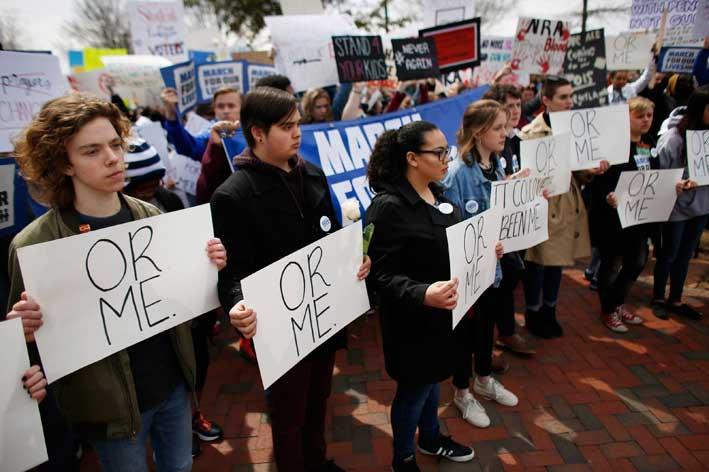
What happens if a section of society believes the rule of law is in trouble, while the other side says there is no problem? How do you repair that bond?
In those cases, you are looking for public spaces for conversation, and you are trying to unearth the issue and ensure it is brought to attention and can’t go away. The media is very important there as they are often the site for public discourse. You don’t just want people to keep saying that there’s a problem; you need some kind of mechanism to take account of the claims and be able to address them. We hope to turn to legislatures or respected public officials to hear the plea, and sometimes we turn to the courts. Well-functioning courts are a better place to make those kinds of claims.
If there can be healthy discourse where there is trade-off and compromise, then I believe there is still a healthy functioning democracy. But when there is a shutdown, when one side cannot be heard in the media or where one side is so intimidated that they do not put forward their views self-censoring out of fear, or when a group is socially excluded and cannot make their points heard, there is a problem.
In the USA and parts of Europe, we have very vulnerable populations of migrants for example, who have many claims that would be good to be heard, about their treatment and because of the precariousness of their lives cannot have a voice.
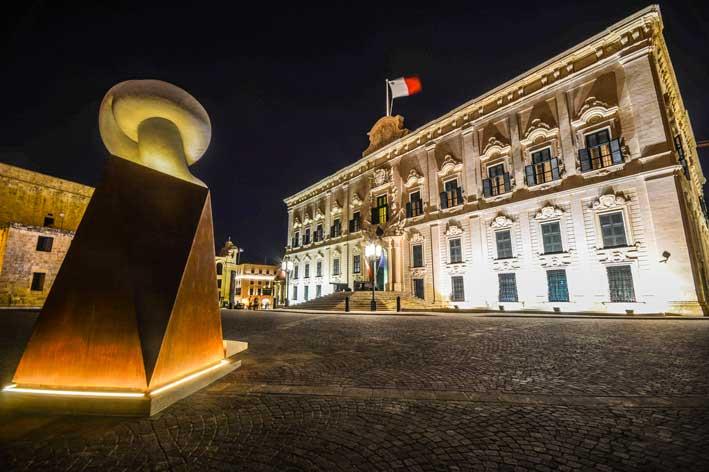
There has been a clash in Malta over the rule of law; do you have an opinion on what has been going on?
It is difficult for someone coming from outside Malta to express an opinion about the right or wrong of one side or the other. Some outsiders who have done that recently came in for a lot of criticism so I’m going to stay away from that.
The only thing I will say is that when you hear a call for the rule of law, when you literally hear that phrase which I think is relatively recent in both your country and mine, it is important to pay attention and know that maybe there is something that needs to be done.
It probably isn’t a simple fix, and is not just about changing a government or a person. If it gets to the point where there’s a call for the rule of law then it’s a good time, an opportunity to look at the system as a whole and identify any gaps. Do people feel like they are being treated equally across the board? Do laws apply equally for all? Do they feel they are being heard and is there space for input for laws? Is there space to do something if you feel you’ve been wronged? Is there trust in the authorities?
It is a good opportunity not to think of there being a quick fix, but to look at whole elements of the system and see if there are any gaps.
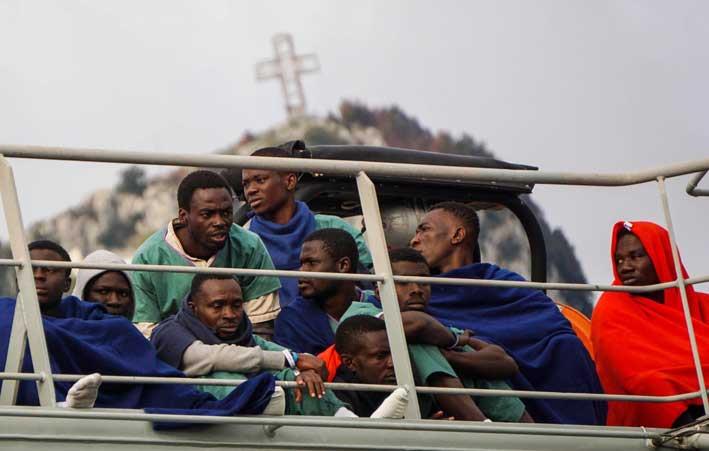
In Malta, the voices of refugees are not often heard, and there is anti-migrant backlash from sections of the public. How do you reconcile that situation?
Sometimes we hear extreme voices in social media, from people who are motivated to put forward somewhat threatening language to silence those who are marginalised, yet I don’t think they speak for everyone. There are other voices out there and I think there is a lot of goodwill. We have a lot of interaction in schools. Of course, migrants are such a diverse group in Malta. I think there is more and more interaction among people and there is potential for barriers to break down.
A really positive sign is the existence of migrant-led organisations, and they are finding their voices. A lot of it has to do how people connect with one another, how newcomers to Malta deepen their ability to contribute to Maltese society, through learning the language and through employment.
The institutions of civil society might be the space for integration to happen through dialogue. In addition, young people tend to reach out across lines of difference.
Professor Susan Hirsch will deliver a public lecture while in Malta entitled “The Call for Rule of Law: A Feminist Approach to Peace and Social Inclusion through Justice”. The lecture is being held on 17 May at San Anton Palace and is being organised by the President’s Foundation for the Wellbeing of Society.